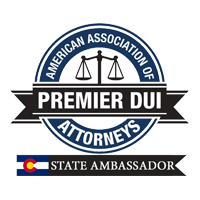Se Habla Español
100% Free Consultation - Call, Email or Schedule Consultation 24/7
(303) 357-3035Click to EmailSchedule Online

Felony Questions
Denver DUI & Felony Defense Attorney
What is the difference between a felony and a misdemeanor?
“Felony” and “misdemeanor” are categories used to determine the severity of a crime and the prescribed punishment, such as jail time and/or fines. Felonies are the more severe. In practice, the difference between a felony offense and a misdemeanor is determined not by what you actually did, but how your action is represented by police and the prosecuting attorney, and a good criminal defense attorney can help ensure that accusations against you are tempered by facts and do not receive disproportionate punishment.
Are there different categories of misdemeanors?
Yes. Misdemeanors are divided into three classes, with class 3 being the least serious and carrying a presumptive sentence of up to six months in jail and a fine of up to $750. Class 1 misdemeanors carry a presumptive sentence of up to 18 months in jail and a fine of up to $5000.
Are there different categories of felonies?
Yes. Felony offenses are divided into six classes. Class 6 felonies are the least serious, with a presumptive sentence of up to 18 months in prison. A class 1 felony carries a presumptive sentence of at least lifetime imprisonment and possibly the death penalty.
Judges have discretion to use a combination of fines and probation instead of or in addition to imprisonment for some felony offenses.
If I’m convicted of a felony or misdemeanor, will my sentence fall within the presumptive penalty range?
Not necessarily. The presumptive penalty range is a starting point for sentencing. Sometimes particular crimes carry what are known as sentence enhancements, or you can be charged with additional counts such as a “special offender” enhancement in a drug conspiracy case. Also, judges have the authority to use sentencing alternatives in some cases, or to give lower sentences under certain circumstances.
Does Colorado have a “three strikes” law?
Not quite. Colorado has what is known as a “habitual criminal” law that applies to a third class 1 or 2 felony or class 3 felony that is a crime of violence. Any person who is convicted of a third offense of this type should receive life imprisonment and is ineligible for parole for at least forty years, assuming that the offenses are either class 1 or 2 felonies or class 3 felonies that are crimes of violence.
Can felons vote in Colorado?
Yes. After you have served your term of imprisonment, all your rights are restored under the constitution, including your right to vote and serve in public office. You are even allowed to serve on a jury during your term of imprisonment.
Why should I choose Nicolas M. Geman for my Criminal Defense?
When you are facing felony or even misdemeanor criminal charges, your rights, your freedom, and your future are on the line. Choosing the right criminal defense attorney can make all the difference in the world. Experienced, dedicated criminal defense attorney Nicolas M. Geman knows how to fight for your rights and get the best possible outcome in your case.
To learn how Nicolas M. Geman can help, please contact him today to schedule your consultation. We represent clients throughout the Denver and Boulder areas of Colorado.
Get a 100% Free Consultation Contact the Denver DUI Attorneys at Geman Criminal Defense
Se Habla Español
Practice Areas
- Denver DUI Attorney
- Drugs and Controlled Substances
- Assault & Domestic Violence
- Felony Questions
- Theft & Fraud Defense
- Burglary, Theft & Robbery




 Denver DUI Attorney
Denver DUI Attorney